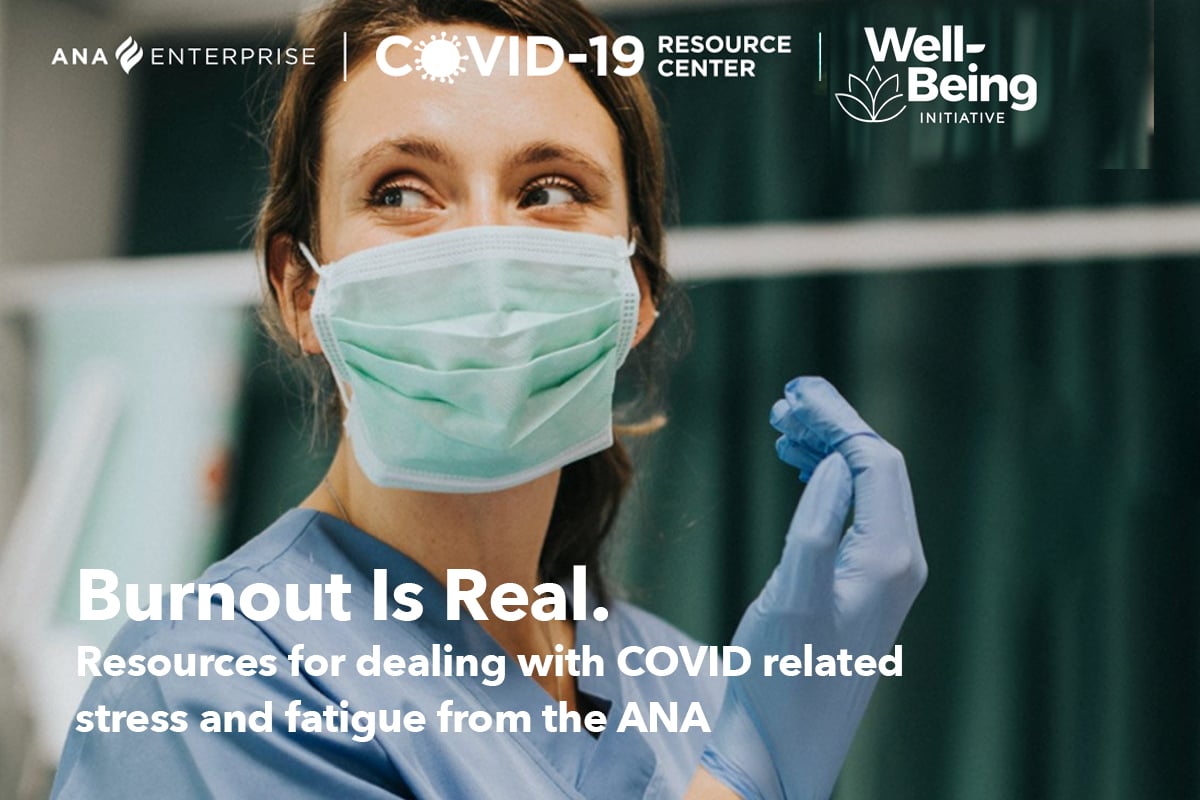
Health care professionals have long experienced high levels of stress and burnout, and COVID-19 has only exacerbated the problem. The first wave of the pandemic placed an enormous burden upon nurses and physicians. As a result, a growing number are experiencing a significant amount of stress and burnout. In 2018, an article published in JAMA reported a rate of 43.4% of nurses were experiencing burnout. A survey published by The International Council of Nurses in January of 2021 reported a rate of 70% worldwide. With another COVID surge in our midst, our healthcare professionals continue to be relied upon to work longer hours, be reassigned to other duties and face a variety of stressors and fears related to the pandemic.
Many organizations are recognizing that help is needed and are providing tools to help healthcare workers cope with stress and burnout. One such resource is The American Nurses Association (ANA) Well-Being Initiative, which provides a variety of tools, apps and organizations to support the mental health of all nurses.
Another resource is making it’s way through Congress, The Dr. Lorna Breen Health Care Provider Protection Act, (S. 610 and HR 1667). The goal of Dr. Lorna Breen Act is to reduce and prevent suicide, burnout, and mental and behavioral health conditions among health care professionals. The Act aims to establish grants for training, research and implementation of strategies to reduce and prevent suicide and burnout among healthcare workers. The Dr Lorna Breen Act was unanimously passed by the Senate and now heads to the House of Representatives for final passage. To learn more about the Dr Lorna Breen Act, visit: https://drlornabreen.org/about-the-legislation/
DISCLAIMER: The content provided on this webpage is general in nature and does not constitute legal or medical advice. This webpage is for reference only. Always consult with a qualified health care provider for any questions you may have regarding thoughts of suicide. If you believe someone is at imminent risk of harming themselves and is refusing help or you have reason to believe someone has harmed themselves, call 911. Laws vary by jurisdiction, locality, state, or country; please follow the laws of your specific jurisdiction and consult with an attorney if you have any questions regarding the laws of your jurisdiction.
ADDITIONAL DISCLAIMER: Programs, resources, or information mentioned or referred to on any webpage are for illustrative purposes only. ScottCare does not endorse any program, resource or information mentioned or referred to on any webpage.


